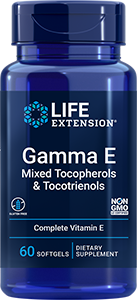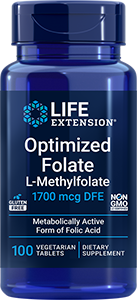
Newsletter
Newsletter
Studies find help for probiotics in two upper GI conditions

February 11, 2020
Findings from recent studies concerning the effects of probiotics against infection with the bacteria Helicobacter pylori (H. pylori) and gastroesophageal reflux disease (two common upper gastrointestinal conditions) emphasize that these friendly bacteria benefit more than just the lower gastrointestinal (GI) tract, the site of their best known effects in the body.
A meta-analysis conducted by researchers in China published in 2019 in the journal Medicine concluded that probiotics improved the elimination of the bacteria H. pylori and minimized side effects when added to a standard eradication regimen. H. pylori infections are the major cause of gastroduodenal ulcers, chronic gastritis, gastric cancer and other disorders.
Xiaoguang Shi, MM, and colleagues analyzed 40 randomized, controlled trials that included a total of 8,924 participants treated for H. pylori infection. Participants who received Lactobacilli, Bifidobacterium or Saccharomyces probiotics or a mixture of the three were compared to those who received a placebo or no additional treatment. The probiotics were given before, at the same time, at the same time and after, or after the standard H. pylori eradication regimen for periods ranging from seven to 35 days.
“Our study indicated that probiotics improved the eradication rate and reduced the incidence of side effects when administered with treatments of eradicating H. pylori, especially combined with the bismuth quadruple regimen,” the authors reported. “Better eradication effects were exerted when using probiotics before and throughout the eradication treatment or using probiotics for more than two weeks.”
Gastroesophageal reflux disease (GERD) is another common upper GI condition. GERD occurs when the stomach acid that facilitates digestion flows upward into the esophagus. GERD causes heartburn, indigestion and an increased risk of Barrett’s esophagus, a condition caused by damage from long-term stomach acid exposure that is associated with an increased risk of a type of esophageal cancer.
“In this systematic review, 13 prospective clinical studies, comprising 14 comparisons, were reviewed to determine the potential of probiotics to alleviate upper-GI symptoms in GERD in the general adult population,” wrote Jing Cheng and Arthur C. Ouwehand in an article appearing on January 2, 2020 in the journal Nutrients. “The mechanism of action of probiotics has focused primarily on the lower digestive tract, and the activities of probiotics in the upper-GI tract remain largely unknown.”
The selected studies included randomized trials, before and after comparisons and crossover studies. Probiotics included L. gasseri LG21, B. bifidum YIT 10347, Bifidobacterium animalis subsp. lactis HN019, Lactobacillus reuteri DSM 17938, and multistrain formulas that contained strains of species of B. bifidum, B. lactis, Bifidobacterium longum subsp. longum, Lactobacillus casei, Lactobacillus plantarum, Lactobacillus rhamnosus and Lactobacillus acidophilus. Treatment times ranged from one to 12 weeks.
Eleven of the 14 comparisons revealed improvements in GERD symptoms in association with probiotics. Improvements in regurgitation, reflux or heartburn, symptoms of indigestion, nausea, abdominal pain and gas-related symptoms were among the effects associated with probiotic supplementation in various studies.
These studies add to the research findings in support of probiotics’ multifaceted benefits and emphasize their positive role in the support of upper GI health.
Products
Apply What You've Learned: GERD
- Gastroesophageal reflux disease (GERD) is estimated to affect 20% of adults in the Western world; however, many people with GERD symptoms fail to consult a healthcare provider.1 Esophageal mucosal damage, which can develop in untreated long-term GERD patients, can increase the risk of a type of esophageal cancer.
- Helicobacter pylori (H. pylori) infection has been found in up to 40% of GERD cases.2
- GERD is usually treated with medications or supplements that neutralize stomach acid or drugs that decrease the body’s production of stomach acid. Long-term use of one variety of the latter, known as proton pump inhibitors (PPIs), has been recently associated with a number of adverse effects.3
- Raft-forming reflux suppressants are a combination of a gel-forming fiber with an antacid buffer that release carbon dioxide bubbles upon reaching the stomach. The bubbles become trapped in the fiber and transform it to a foam that floats on stomach contents to decrease GERD symptoms.
- Correcting obesity improves or eliminates GERD symptoms in many individuals. Other modifiable factors that aggravate GERD include smoking, eating large meals and consuming meals before bedtime.
References
- Antunes C et al. “Gastroesophageal Reflux Disease.” StatPearls [Internet]. Treasure Island (FL): StatPearls Publishing; 2019 May 5.
- O’Connor JH. Aliment Pharmacol Ther. 1999 Feb;13(2):117-27.
- Lanas-Gimeno A et al. Expert Opin Drug Saf. 2019 Nov;18(11):1043-1053.
Health Concern
Related Life Extension Magazine® Articles
Life Extension Magazine® Issue Now Online
A remarkable number of healthy-longevity findings have been published over the past 18 months.
Check Out Life Extension’s Blog!
Life Extension’s blog provides interesting and informative articles throughout each month to keep our readers informed on current topics in the fields of health and longevity.
Recent blog posts discuss boosting serotonin for weight management, flu season tips, supercentenarian secrets, running for longevity, how lab tests can benefit athletic performance and more.









